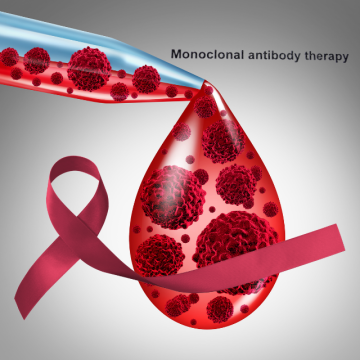14
Jan
Study Finds Link Between Pesticide Exposure and Rare Blood Cancer Predecessor (MGUS)

(Beyond Pesticide, January 14, 2021) Long-term exposure to permethrin and legacy organochlorine pesticides (aldrin, dieldrin, and lindane) increase the risk of developing monoclonal gammopathy of undetermined significance (MGUS), a blood disease that likely precedes multiple myeloma (MM)—a type of blood cancer, according to research in the journal Environmental Health Perspectives. Globally, cancer is one of the leading causes of death, with over eight million people succumbing to the disease every year. Notably, the International Agency for Cancer Research (IARC) predicts new cancer cases to rise by 67.4% in 2030.
Although there is a vast amalgamation of research linking cancer risk to genetic and external factors (e.g., cigarette smoke), there is increasing evidence that pesticide exposure augments the risk of developing both common and rare cancers, including MM. This study highlights the importance of understanding how pesticide use can increase the risk of latent diseases, which do not readily develop upon initial exposure. Study researchers state, “Our findings provide important insights regarding exposures to specific pesticides that may contribute to the excess of MM among farmers… [T]he continued widespread residential and other use of permethrin and environmental exposure to organochlorine insecticides due to legacy contamination…could have important public health implications for exposed individuals in the general population.”
The National Cancer Institute, National Institutes of Health, and other health agencies intended that research assess the occurrence of MGUS in farmers and gauge any relationships between disease development and various pesticides. Using data from the Agricultural Health Study (AHS), researchers evaluated MGUS incidences among 1,638 male farmers, aged 50 years or older, from a prospective cohort in Iowa and North Carolina. Researchers statically quantified the strength of association between MGUS incidents for recent (≤12 months) and cumulative lifetime use of differing specific pesticides, using an odds ratio (OR).
The study results demonstrate MGUS is significantly more common among AHS study participants than men of a similar demographic in the general population. Researchers find an association between recent permethrin use and MGUS incidence, especially among individuals with a history of past permethrin use. MGUS rates increase with long-term use of organochlorine insecticides aldrin and dieldrin compared to individuals without exposure to both pesticides. Similarly, data demonstrate a positive association between MGUS incidences and petroleum oil/distillates as herbicides.
The presence of abnormal proteins (monoclonal [M] protein) in the blood within bone marrow is a characterization of monoclonal gammopathy of undetermined significance. Although MGUS is benign (non-cancerous) and largely asymptomatic, it can be premalignant or a precursor for cancer development. Annually, one percent of individuals with MGUS will develop cancers like multiple myeloma, lymphoma, or amyloidosis. However, the cancer risk increases in people whose protein levels are abnormally high, which can occur upon repeated exposure to endocrine-disrupting chemicals, like pesticides. Moreover, multiple myeloma is a rare type of blood cancer of the plasma cells, killing nearly 40 percent of 32,270 people it afflicts in the U.S. annually. Although MM mainly impacts older individuals, the elderly population faces a distinct set of challenges such as age-related immune dysfunction. Since MM causes plasma cells to function abnormally, older people with weak immune function can experience more life-threatening symptoms like renal (kidney) failure.
This study adds to the growing body of research on MGUS and pesticide exposure, becoming the largest to investigate MGUS incidences in farmers and the first to show an association between MGUS and permethrin use (a pyrethroid insecticide). In combination with previous studies demonstrating that exposure to permethrin may elevate MM risk among farmers, these findings provide reliable evidence establishing a link between permethrin and MM development. Considering the U.S. Environmental Protection Agency classifies permethrin as “likely to be carcinogenic to humans,” and experimental studies demonstrate permethrin-induced bone marrow toxicity, further research should assess the mechanisms by which pesticides impact biological pathways to cause MGUS and MM. The researcher in the study note, “Given the continued widespread use of permethrin in various residential and commercial settings, our findings may have important implications for exposed individuals in the general population.”
Although this research finds an inverse association between MGUS and fonofos (organophosphate insecticide) use, EPA classifies the pesticides as an extremely hazardous substance, canceling registration in 1998. Moreover, previous AHS findings associate fonofos exposure with an increase in prostate cancer risk.
Cancer is becoming the leading cause of death worldwide; it is essential to know and understand the implications pesticide use and exposure has on human health. Studies related to pesticides and cancer can help scientists understand the underlying mechanisms that cause the disease. It is vital to understand how exposure to environmental pollutants like pesticides can increase the risk of developing chronic disease, especially if they are rare and disproportionately impact various populations.
Beyond Pesticides tracks the most recent studies related to pesticide exposure through our Pesticide Induced Diseases Database (PIDD). This database supports the clear need for strategic action to shift away from pesticide dependency. For more information on the multiple harms, pesticides can cause, see PIDD pages on sexual and reproductive dysfunction, endocrine disruption, cancer, and other diseases.
Furthermore, protect human, animal, and environmental health by telling President-elect Biden and Congress to clean up the corruption of science at EPA and set a moratorium on future pesticide registrations.
For more information on how organic is the right choice for both consumers and the farmworkers who grow our food, see Beyond Pesticides webpage, Health Benefits of Organic Agriculture.
All unattributed positions and opinions in this piece are those of Beyond Pesticides.











Hey There,
January 14th, 2021 at 8:06 amThank you for sharing such an informative post. The Content is simply impeccable. Looking for the next one.
Fantastic article-thanks for so much information on this subject. Thoroughly enjoyed!
January 21st, 2021 at 11:21 am